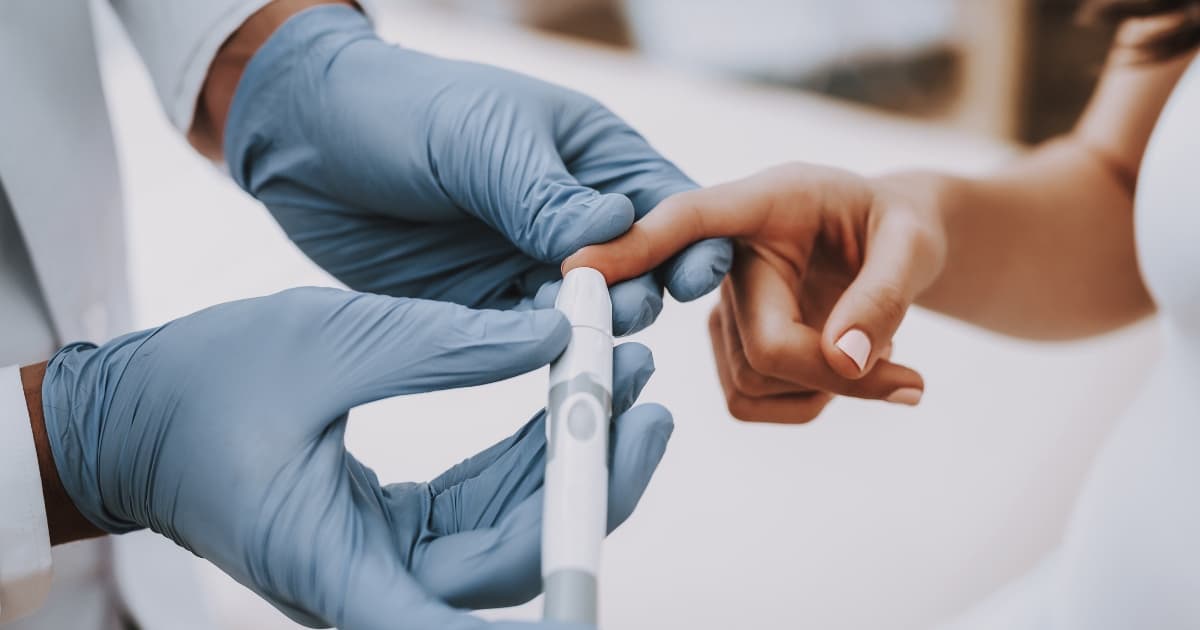[ad_1]
Type 1 diabetes currently affects over 1.9 million Americans, and over 8 million worldwide live with the condition.
However, the symptoms can be tricky to pinpoint. So much so that nearly one in four cases of type 1 diabetes is diagnosed when the patient is already in diabetic ketoacidosis (DKA.)
This article will explain the top five signs of type 1 diabetes you should know.

What are the top five signs of type 1 diabetes?
In addition to someone generally feeling unwell, the following are telltale signs and symptoms of undiagnosed type 1 diabetes.
If you or someone you know has been experiencing any of the following symptoms for several weeks without improvement, seek emergency medical help immediately.
Frequent urination (polyuria)
Polyuria, or frequent urination, is a common sign of undiagnosed type 1 diabetes.
People with undiagnosed type 1 diabetes will urinate more overnight, often multiple times per night. They may urinate anywhere from 2.5 to up to 15 liters of urine per day.
Children with undiagnosed type 1 diabetes will wet their diapers or their beds more than normal.
Excessive thirst leads to frequent urination, which also contributes to rapid weight loss—all three of which are common symptoms of type 1 diabetes.
Excessive thirst (polydipsia)
People with undiagnosed type 1 diabetes often get extremely thirsty.
This is due to high blood sugar levels. People with undiagnosed diabetes may drink up to 6 liters of liquid per day and still be thirsty.
When people drink sugar-sweetened beverages, it makes their blood sugar even higher, which leads to more thirst, creating a dangerous cycle.
Rapid weight loss
Due to high blood sugar levels, people with undiagnosed type 1 diabetes will lose weight, oftentimes very quickly.
People may lose between 10-20% of their body weight, if not more, in a matter of weeks.
This happens despite eating a normal amount of calories.
The body is now burning fat for fuel because the body’s cells cannot properly use glucose (due to a lack of insulin.)
Fruity-smelling breath
People with undiagnosed diabetes will sometimes experience a fruity-smelling breath. The sweet-smelling breath is caused by ketones.
When fat gets broken down in the body for energy instead of glucose, acidic chemicals known as ketones are produced.
This acid builds up in the blood, which can poison the body, resulting in diabetic ketoacidosis (DKA) which is potentially life-threatening.
Seek emergency medical attention immediately if these symptoms persist. This is a classic sign of prolonged and extremely high blood sugar.
Blurry vision
Prolonged high blood sugar levels will also alter your vision, rendering it blurry.
This is because high levels of glucose in your blood can cause the lenses of your eyes to swell with fluid, causing blurry or distorted vision.
This will usually go away after blood sugars come down with a proper diagnosis and insulin therapy.
However, it can sometimes take a few weeks for vision to return to normal after a diabetes diagnosis.
Over time, diabetes can damage the blood vessels of the eyes, causing diabetic retinopathy that is not reversible.
Call your doctor or seek medical attention immediately if you’re experiencing any or all of the aforementioned symptoms. Undiagnosed type 1 diabetes can be life-threatening.
What is type 1 diabetes sometimes mistaken for?
Type 1 diabetes, in its earliest symptoms, can sometimes be mistaken for the following ailments:
- Growth spurt
- Influenza (the flu)
- The common cold
- Puberty
- Urinary tract infection (UTI)
- Streptococcus Infection (strep throat)
- Mononucleosis (Mono)
- Stomach bug (norovirus)
- General lethargy
- COVID-19
Call your doctor immediately if you, or someone you know, has had mysterious symptoms for several weeks and they are not improving.
I’ve been having type 1 diabetes symptoms for a few weeks, what should I do?
Call your doctor if:
- You’re experiencing one or more symptoms of type 1 diabetes.
- Your symptoms are not getting better, or they’re getting worse after several weeks.
Your doctor can administer a blood sugar test to determine if you have type 1 diabetes.
Call 911 or seek emergency medical attention if you cannot reach your doctor and your symptoms are getting progressively worse.
Can type 1 diabetes be cured?
Unfortunately, there is no known cure for type 1 diabetes.
However, advances in technology and medications have made the management of the condition better than ever.
If you have type 1 diabetes, talk to your doctor about the latest technology.
Insulin pumps, continuous glucose monitoring (CGM) systems, and new insulins on the market can make the management of your blood sugar levels easier.
[ad_2]
Source_link

